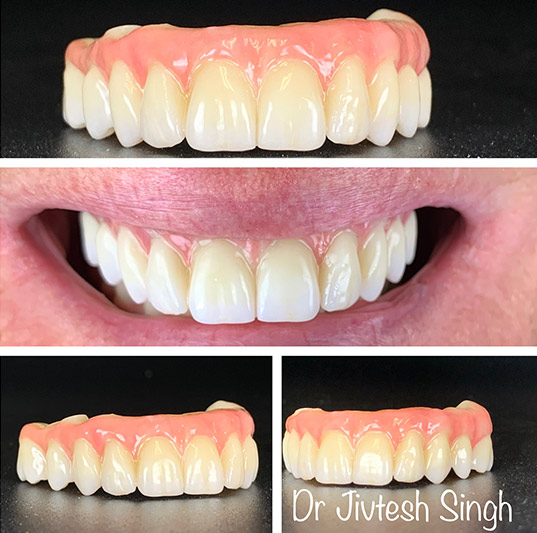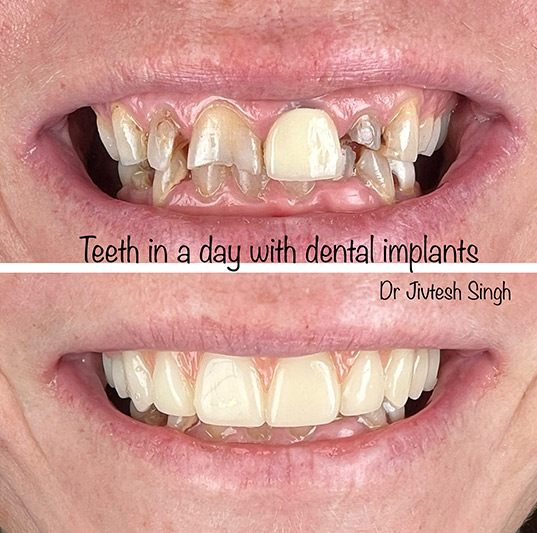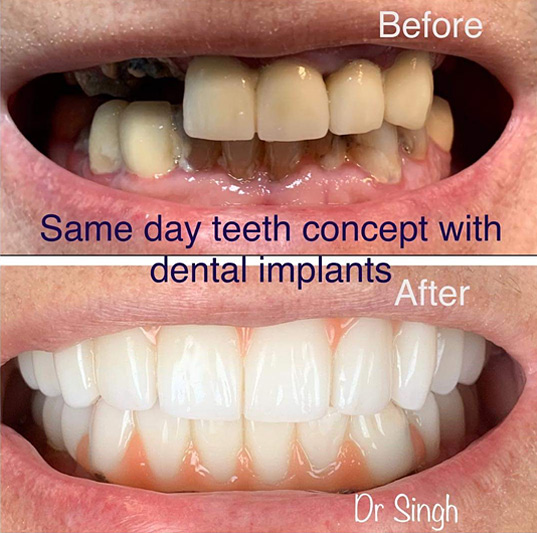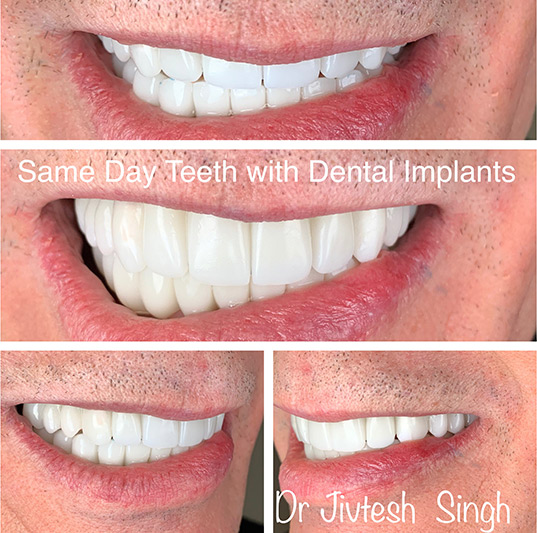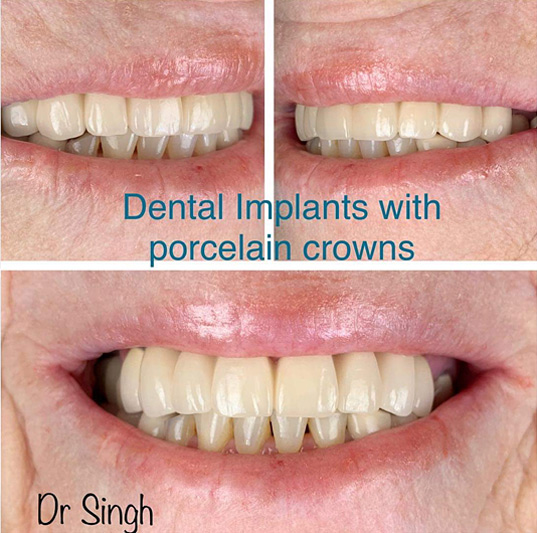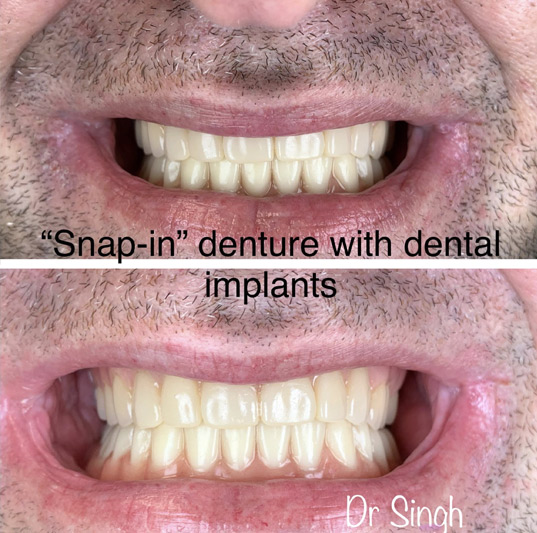-
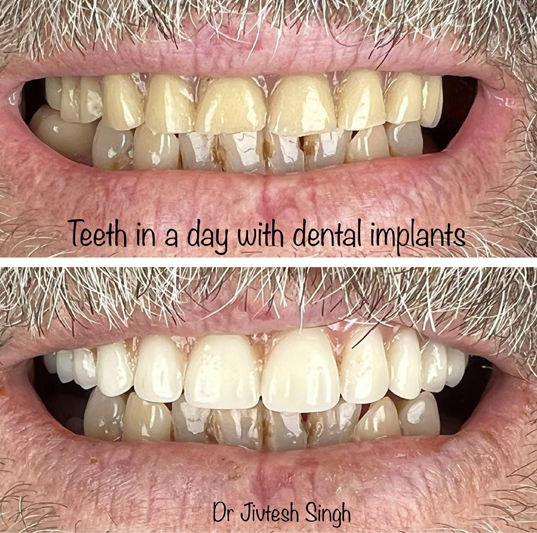
Teeth in a Day
with Dental Implants -
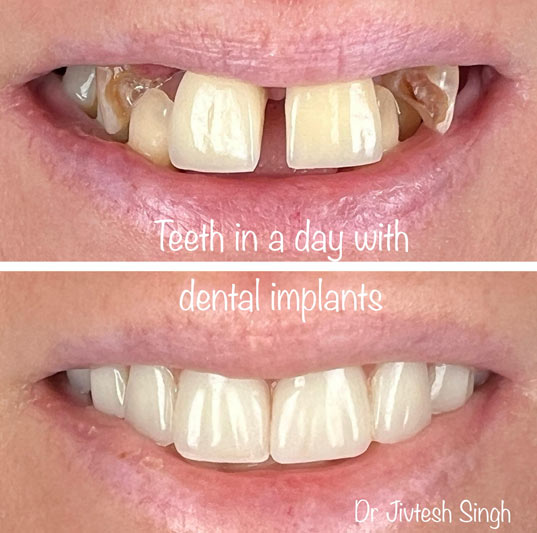
-
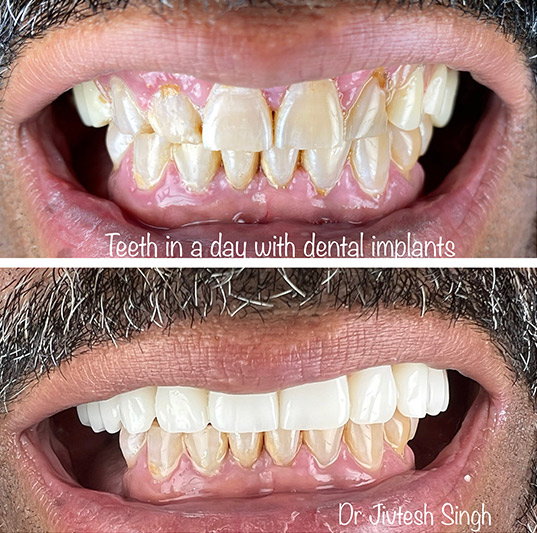
At A & B Dental, we place hundreds of dental implants every year. Dr. Singh has spent years refining his dental implant technique, resulting in a high success rate and brilliant smiles for our patients. If you are considering dental implants for single tooth replacement, multiple teeth replacement or implant supported dentures.
What are Dental Implants?
Dental implants are posts made of titanium which are implanted into the jaw bone. The bone grows around and integrates with the post, creating a replacement “root”. This provides a structure around which a restoration can be built to replace a single tooth, or which a full arch bridge or denture can be affixed to replace multiple teeth.
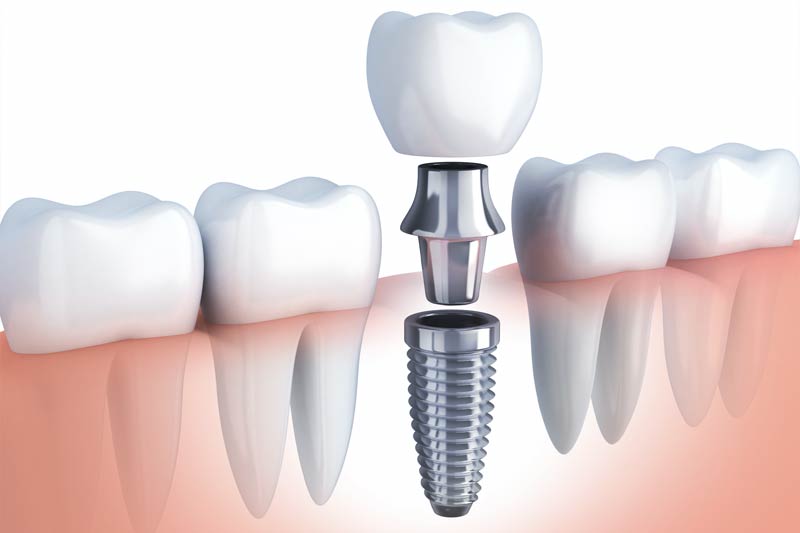
Am I a Candidate For Dental Implants?
Almost anyone can be a candidate for dental implants; the main difference between patients have to do with how much preparatory work must be completed prior to the implant placement. When a tooth is lost, underlying bone begins to dissolve, and sufficient bone is required to securely hold an implant in place.
How much do dental implants cost?
The final cost of your implant will depend on a variety of factors, again, mostly having to do with the location of the desired implant, number of implants required, and any prep work needed to prepare the site for a successful dental implant. Overall, a dental implant is often the most cost effective tooth replacement option long term.
Why choose dental implants?
Dental implants have a number of benefits not offered by other dental restorations. They often last the rest of the patient’s lifetime, and can help prevent further damage to the bone and tissue surrounding the implantation site. The high success rate of dental implants makes them the gold standard for tooth replacement.
Which are better – implants or dentures?
Dental implants provide a permanent tooth replacement, and help preserve jawbone by stimulating it like a natural tooth root. In contrast, traditional dentures must be routinely altered due to changes in the mouth as unused jawbone dissolves. Dentures can be cost-effectively supported on four or six implants per arch.
How do Dental Implants Work?
Titanium is biocompatible with the bone and gum tissue, meaning it can be integrated into the body
with no adverse effects. The bone of the jaw actually bonds with the titanium, creating a strong
foundation for artificial teeth and stimulating the bone so it remains healthy. The presence of the post in
the jawbone prevents the bone from dissolving.
The implant acts as an anchor for the final restoration. Once titanium and the jawbone have successfully
integrated and the gums have healed, a crown that is designed to look, feel, and function just like the
original tooth is used to cover the post and the restoration is complete.
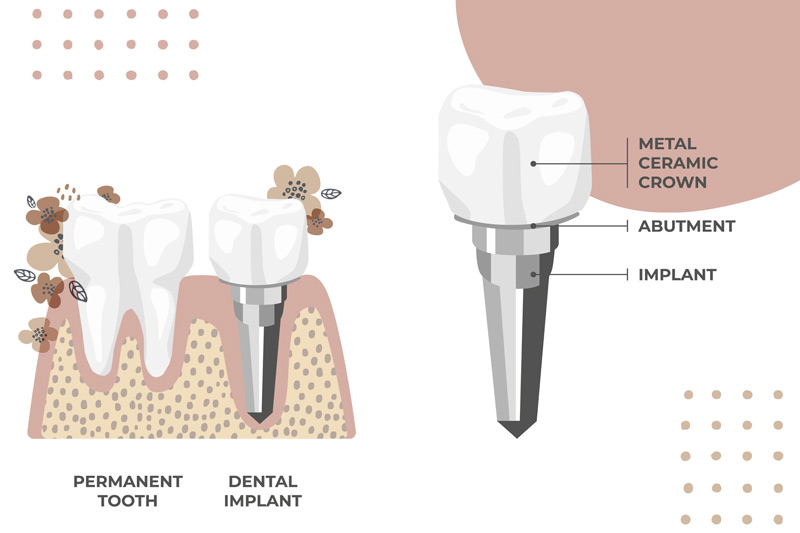
Benefits of Dental Implants
Dental implants are the preferred option for tooth replacement for the following reasons:
- They can be used to replace any individual tooth or series of teeth
- They can also be used to support bridgework or dentures
- They prevent the loss of bone in the jaw, preserving the facial structure
- They can last the rest of a patient’s lifetime if cared for properly
The Dental Implant Process
For some patients, particularly those who have had missing teeth for some time and experienced bone
loss, prep work for the implants may need to be performed first. This can involve ridge augmentation or
bone grafts to provide a strong foundation for the implant, or even a sinus lift to make room for an
implant and strengthen the implant site.
The actual placement of dental implants normally involves two surgical procedures. First, the titanium
posts will be implanted in the jawbone, and three to six months allowed to go by while the bone and
post bond. Second, the post is uncovered and a restoration fabricated that looks, feels, and functions
like the original tooth.
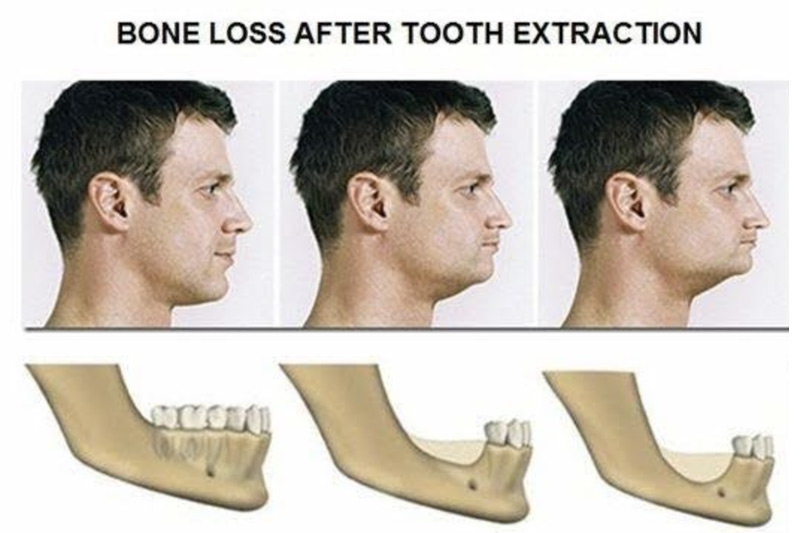
Pros and Cons of Dental Implants
Dental implants are the best option for many people seeking to permanently replace a missing tooth.
They:
- Look like a natural tooth
- Feel like a natural tooth
- Function like a natural tooth
- Prevent bone loss in the jaw
- Provide stability for adjacent teeth
- Can last the rest of your lifespan
- Are the most cost effective option over time
However, the slightly higher price tag of implants can make some people think that they cannot afford implants, and the lack of bone available to support implants in patients with existing tooth loss can require extensive prep work to be done before a successful implant can be placed.
Why Dental Implants are the Gold Standard
Dental implants are the longest lasting tooth replacement available. Compared to other options, they are the clear choice for many patients. The success rate for properly maintained dental implants is well over 90%, compared with the almost certain failure of other types of restorative dental work over time:
- A crown typically lasts only 5-10 years
- A bridge typically lasts only 10-15 years
- Dentures typically must be revised or relined every 2-5 years
- Bridgework and dentures don’t resolve the issue of bone loss
Schedule a Consultation

